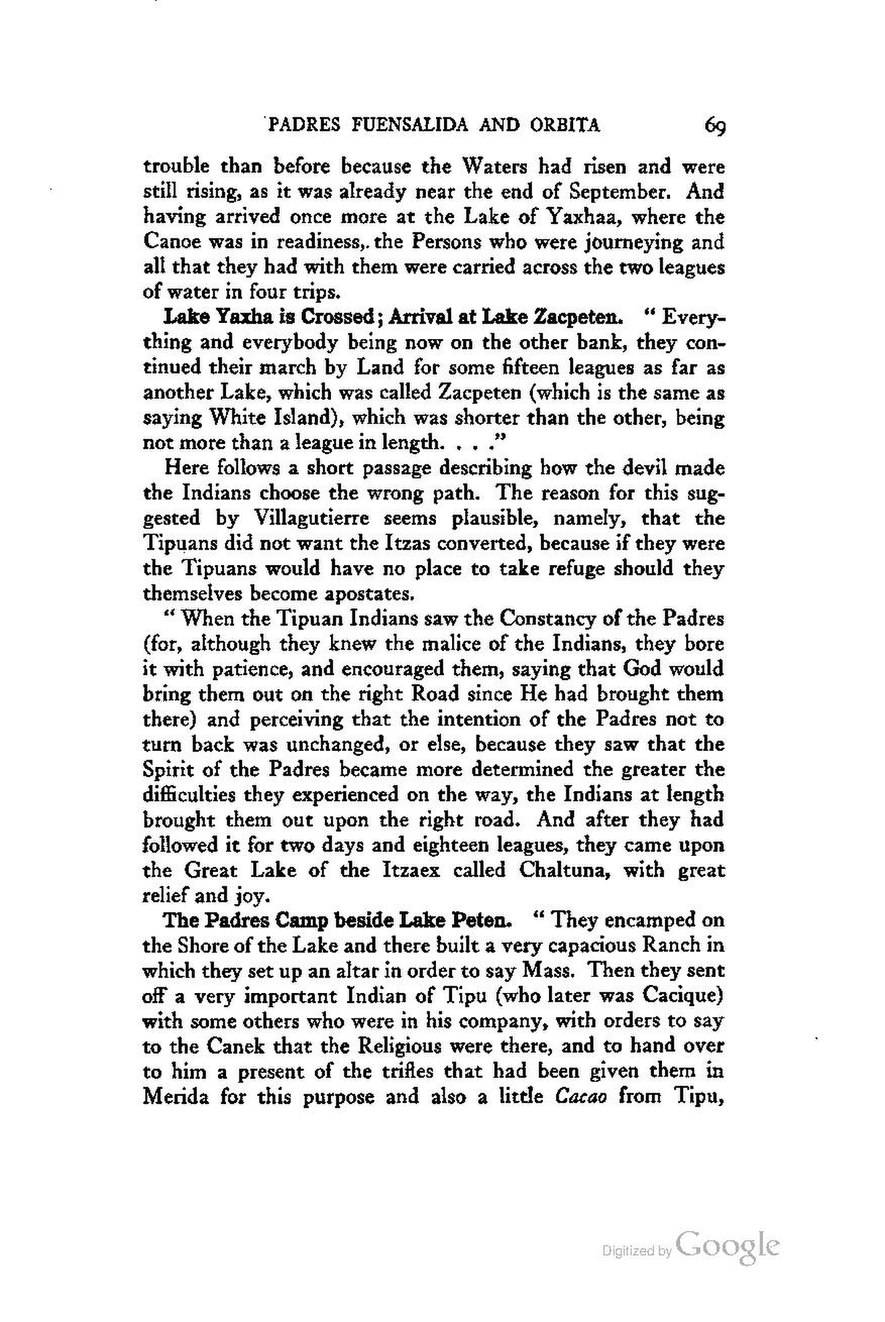trouble than before because the Waters had risen and were still rising, as it was already near the end of September. And having arrived once more at the Lake of Yaxhaa, where the Canoe was in readiness, the Persons who were journeying and all that they had with them were carried across the two leagues of water in four trips.
Lake Yaxha is Crossed; Arrival at Lake Zacpeten. “Everything and everybody being now on the other bank, they continued their march by Land for some fifteen leagues as far as another Lake, which was called Zacpeten (which is the same as saying White Island), which was shorter than the other, being not more than a league in length....”
Here follows a short passage describing how the devil made the Indians choose the wrong path. The reason for this suggested by Villagutierre seems plausible, namely, that the Tipuans did not want the Itzas converted, because if they were the Tipuans would have no place to take refuge should they themselves become apostates.
“When the Tipuan Indians saw the Constancy of the Padres (for, although they knew the malice of the Indians, they bore it with patience, and encouraged them, saying that God would bring them out on the right Road since He had brought them there) and perceiving that the intention of the Padres not to turn back was unchanged, or else, because they saw that the Spirit of the Padres became more determined the greater the difficulties they experienced on the way, the Indians at length brought them out upon the right road. And after they had followed it for two days and eighteen leagues, they came upon the Great Lake of the Itzaex called Chaltuna, with great relief and joy.
The Padres Camp beside Lake Peten. “They encamped on the Shore of the Lake and there built a very capacious Ranch in which they set up an altar in order to say Mass. Then they sent off a very important Indian of Tipu (who later was Cacique) with some others who were in his company, with orders to say to the Canek that the Religious were there, and to hand over to him a present of the trifles that had been given them in Merida for this purpose and also a little Cacao from Tipu,
